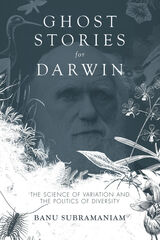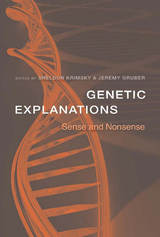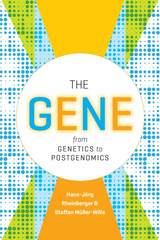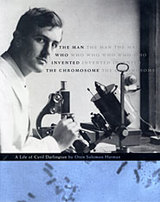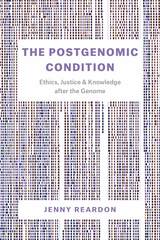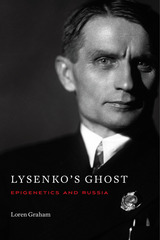Nathaniel Comfort has woven the disparate threads of science, biography, feminism, and myth into a powerful narrative that will stand the test of time as the definitive McClintock. As this remarkable story unfolds, Comfort presents her discoveries in their rich historical context and unapologetically describes flaws and fallacies as well as the awe inspiring prophetic power of her experiments with Indian corn. Through painstaking analysis of her original research notes, as well as anecdotes and interviews with close friends and contemporaries, he has dissected her unique but rigorous approach to give an unparalleled insight into one of the great thinkers of her age. At the same time, he provides a poignant and vivid portrait of a surprisingly warm and personable woman instantly recognizable to those who knew and loved her.
-- Rob Martienssen, PhD, Cold Spring Harbor Laboratory
Barbara McClintock was one of the most fascinating, brilliant and influential geneticists of the 20th century, the century of genetics. Nathaniel Comfort has written an elegant and eminently readable biography that, for the first time, does justice to her science while at the same time separating the reality of her life and work from the myths that grew around her. This is a great book for anyone with an interest in the history of ideas about genes, genomes, development and biological regulation; it is also a great book for anyone with an interest in the interplay of intellect, craftsmanship, intuition and insight, as well as friendship, gender, and personality in the intellectual life of a great scientist.
-- David Botstein, Stanford University
Barbara McClintock was a well known and outstanding woman scientist. When late in life she won the Nobel Prize, she became the subject of a set of myths, both personal and scientific to which even she contributed. By carefully documenting her science and her life, Nathaniel Comfort shows that she was a Giant in every way for whom the myths only detracted from understanding her true persona.
-- Norton D. Zinder, Rockefeller University
Nathaniel Comfort's The Tangled Field appears to focus on the scientist Barbara McClintock, but most directly concerns the reputation of her science. Comfort strives to demythologize this supposedly underappreciated, marginalized female corn geneticist. McClintock's mythologizers (including McClintock, Comfort argues) have seen her work on transposition as misunderstood and underappreciated. In contrast, Comfort demonstrates that her research was understood, and was appreciated. Rather, it was McClintock's efforts to promote her work on 'controlling elements' as the key to understanding development that failed to win the acceptance she sought. Well written and unselfconscious, this is important history of science.
-- Jane Maienschein, Arizona State University
An exceptionally well written account of one of the most important, yet misunderstood, figures in the recent history of science. Comfort provides the first serious, focused study of the development of Barbara McClintock's ideas. In this intellectual biography, he concentrates on what made McClintock an important figure in twentieth century genetics: her science.
-- Vassiliki Betty Smocovitis, University of Florida
Lucid, engaging, and unafraid of controversy, Comfort also dismantles the popular image of McClintock as a mystic and a female pioneer marginalized by male scientists. He portrays instead a highly respected and dedicated professional adamant about maintaining her personal and intellectual freedom, who possessed an astonishing attunement to complexity and pattern and a protean abilityto rapidly solve intricate, multidimensional problems.
-- Donna Seaman Booklist
This readable biography of one of the twentieth century's most important geneticists interweaves fact and insight about McClintock as both person and scientist. Her discovery of mobile genetic elements in corn and her efforts to resolve fundamental problems in biology (development, heredity, and evolution) make her...a rare visionary.
-- Natural History
In this ambitious biographical study of Barbara McClintock...[Comfort] challenges the standard interpretation of her science and her life...Comfort has reconstructed in great detail, experiment by experiment, McClintock's work on transposons...He spent years deciphering her cramped and faded handwriting in lab notebooks, on seed packets and in letters to her closest friends...The Tangled Field will certainly stand as the definitive work on Barbara McClintock's discovery of transposition and her ambition to explain development through controlling elements...Comfort does admirably what he set out to do--answer the many fascinating and troubling questions about McClintock's Nobel Prize-winning research, including why it took almost 40 years not to rediscover Barbara McClintock's work but to reinterpret it.
-- Carla C. Keirns American Scientist
Comfort sets out in this intellectual biography of Barbara McClintock to replace the myth of the isolated, misunderstood victim of masculine bias who failed to win immediate recognition for her work with a more nuanced and individuated story that focuses on her actual work, particularly that of her later years. This carefully researched book pays particular attention to McClintock's research notes and previously unpublished correspondence, and it demonstrates a thorough knowledge and understanding of the science involved...[T]his is the first full-length, carefully documented, and scientifically informative study of [McClintock's] life and work, and it is an important contribution to the history of science, particularly of genetics, as well as to feminist science and the history of ideas.
-- M. H. Chaplin Choice
Nathaniel Comfort's book enhances McClintock's status as one of the leading geneticists of the twentieth century. Putting aside the myth of the outsider, he describes how her contributions were appreciated by her contemporaries, and shows that she was well supported by colleagues in her search for a congenial work environment...The Tangled Field is set to become the definitive biography of Barbara McClintock.
-- Anne Magurran Times Literary Supplement




